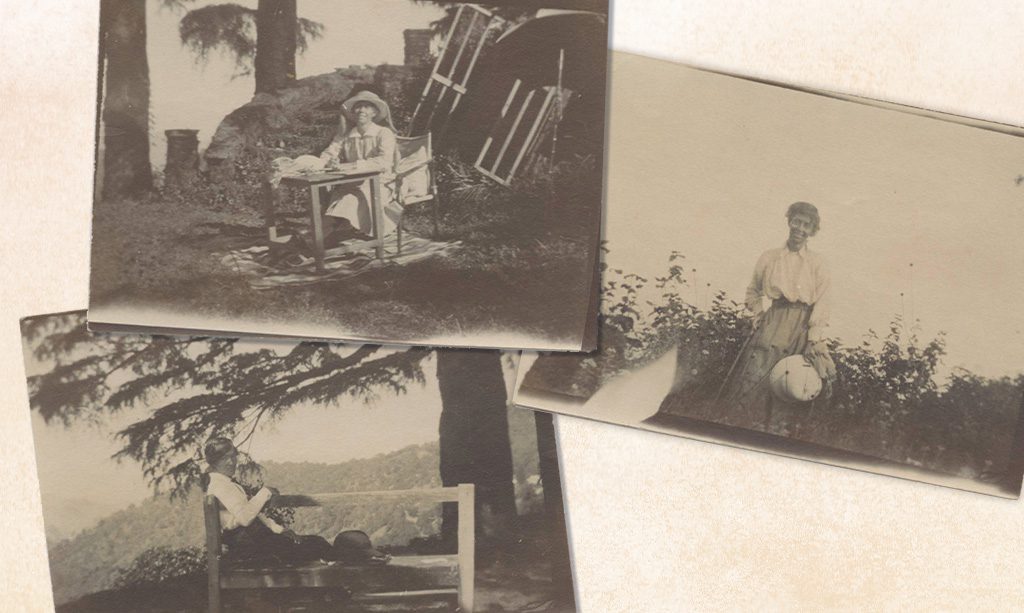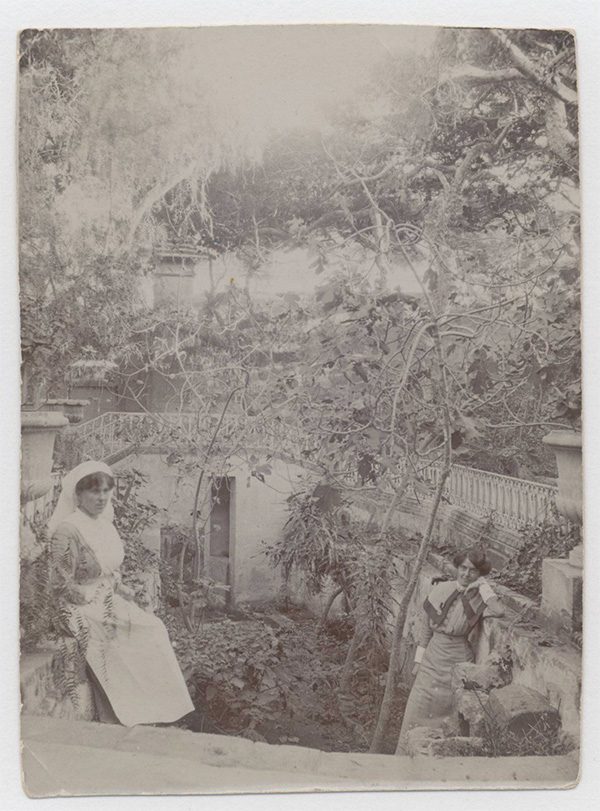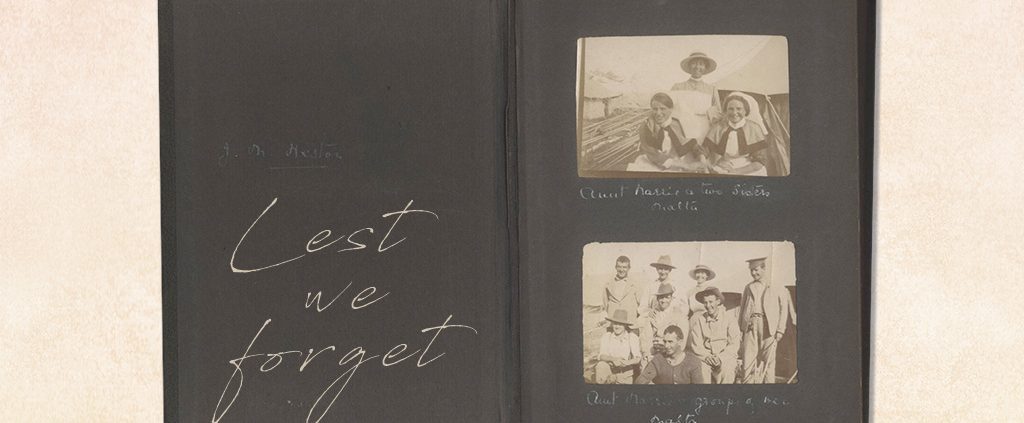Lest We Forget: Remembering the Sacrifices of the Anzac Nurses
The endless procession of stretchers bearing severely wounded men drove home the horrors of the First World War (1914-1918) for Australian nurse Florence Narelle Jessie Hobbes, yet her determination to save and comfort the wounded saw her press on in the face of exhaustion, the lack of food, and an unforgiving climate.
Hobbes wrote in a letter to her family that she felt the “real touch of war” when she saw this scene unfold before her. “Dear heavens, it’s awful, and every man or boy of them is ‘somebody’s boy’,” she wrote. As each stretcher passed by her, she wondered if the next wounded person she saw would be one of her own friends or family, compounding the fears she felt for her loved ones.
Hobbes, who was from New South Wales, was one of the 3,600 nurses (3,000 of whom were from Australia and the other 600 from New Zealand) who had answered the call of duty to serve in the First World War. The First World War was a four-year-long conflict, and was one of the deadliest of wars, costing both Australia and New Zealand dearly in terms of their men’s lives.
Today (25 April), also known as Anzac Day, we remember the sacrifices of these brave men, and the other Australian and New Zealand soldiers who were killed in wars, and to also honor returned servicemen and women. Dawn parades are held in both Australia and New Zealand to commemorate those who had (or currently are) serving in various conflicts.
The date, 25 April, marks the anniversary of the landing of New Zealand and Australian soldiers on the Gallipoli Peninsula in 1915, where thousands of soldiers lost their lives.
I have always been a little obsessed with stories that are set in either the First or Second World War, but most of these stories were centered around the brave men who had enlisted as soldiers. So, when I first learned of Australian author and journalist Peter Rees’ book, Anzac Girls: The Extraordinary Story of Our World War 1 Nurses, I was struck by how overlooked the roles of these nurses in war times were. I realized how little I knew of both the emotional and mental toll the war took on these nurses. I decided it was only fitting to dig deeper into their lives, and to draw attention to the sacrifices that these women made.
That was how I discovered the story of Florence Hobbes.

Pressing On In Spite of the Challenges
What really drew me to her story was reading about how the threat of death didn’t stop Hobbes from signing up to serve king and country at the outset of the First World War in 1914. Hobbes was initially stationed in Malta with the Queen Alexandra’s Imperial Military Nursing Service Reserve (QAIMNSR), and served in the Valleta Military Hospital. It was at this hospital that she nursed casualties of the Gallipoli campaign.
While Hobbes’ letters did not detail the injuries she saw, we can imagine the wounds inflicted on the soldiers fighting in the trenches would have been brutal. According to the Australian Nurses’ Journal, two nurses wrote that words alone cannot describe the “awfulness of the wounds”: “Bullets are nothing. It’s the shrapnel that tears through the flesh and cuts off the limbs.”
Not only did these nurses have to endure the emotional strain of cleaning, washing, and tending to the wounded soldiers, but they also had to contend with unsanitary conditions and fluctuating temperatures (hot, stifling summer months, and cold, freezing winters).
Nurses on active duty would often be moved around to different locations if they were needed. When Hobbes was stationed at Amara, Mesopotamia, she recalled how the taste of their first rain in Amara ended up transforming the grounds into a large muddy patch.
The hospital was built along the Tigris-Euphrates river, and the soil would soak up the water from the river, and wound its way into the nurses’ rooms, the hospital wards, and the walls.
Yet while these conditions were challenging, Hobbes was motivated by her love for her country and fellow countrymen, and felt a strong sense of pride in being able to save and comfort these soldiers who were fighting in the trenches.
Why We Should Remember Them

But as the years passed (and it has been over 100 years since the First World War broke out), it can be easy for us to forget thesacrifices these soldiers and nurses have made. We live in such comfortable times that while we do hear of wars fought afar, most of us would not have personally experienced war, and we can easily take peace time for granted. It’s hard for us to imagine what it was like for these nurses to bid their friends and family goodbye, setting off for long journeys abroad without knowing if they would ever see them again. This is why Anzac Days are so important—to remind future generations of the sacrifices of those who have gone before them.
As I reflected on the selflessness of these nurses, it got me thinking of the love Jesus has called us to show one another in Luke 10:27, where He calls us to love our neighbors as ourselves. These days, it can be easy to think of “loving one another” as sending text messages littered with “xoxo”, or catching up with a friend for a coffee and posting about it on social media.
But I believe Jesus is talking about love in action as demonstrated by the Samaritan in Luke 10:30, where he stopped to tend to the victim, who was robbed, beaten, and left on the sidewalk for dead. The Samaritan bandaged the victim before placing him on his donkey to be carried to the nearest inn. He even paid the innkeeper for the victim’s accommodation. How many of us would be willing to do such an act for a suffering stranger?
Therefore, I was even more inspired to read more about these nurses, who despite their exhaustion, they continued their tasks of tending to the wounded soldiers. Accounts from their diaries and letters reveal their hectic work schedules. Hobbes wrote of a frantic 48-hour shift, during which she was expecting yet another 100 badly wounded patients to pour through.
Unfortunately, Hobbes was claimed by ill health, and died on the ship that was bound for Australia, just four days before she would have been reunited with her family. A simple funeral service was held on board for Hobbes, and she was buried at sea. Her family was presented with a Memorial Scroll, which was given to soldiers, sailors, and nurses who died while serving the Australian Imperial Force or Royal Australian Navy during the First World War. The message on the scroll commemorated the fallen, who “left all that was dear to them, endured hardness, faced danger, and finally passed out of the sight of men . . . giving up their own lives that others might live in freedom.”
It is said that there is no greater love than to lay one’s life down for their friends (John 15:13), and Hobbes has demonstrated this through her dedication and devotion to the wounded soldiers. In turn, this reminds me of the greatest sacrifice Jesus showed when He laid His life down for us on the cross (Philippians 2:6-11). Jesus is God, yet He humbled Himself to the point of death in exchange for our freedom. And because of the freedom that Christ has purchased for us, we too can live our lives with “the same mindset as Christ Jesus” (Philippians 2:5) in service of those around us.
Reading and researching into the lives and sacrifices of these nurses have left me in awe. These nurses saw a need (to serve in wartime) and stepped up to the call. Even though we are not serving in a war, there are many practical ways for us to follow their lead by looking around in our community to see if there is a need we can meet. For example, it could be reaching out to a friend who may be hurting emotionally, a co-worker who might be battling loneliness in the workplace, or offering to help an elderly neighbor to run their weekly grocery shop. Let’s be willing to take a step away from our busy schedules and give up our comfort for the sake of demonstrating love in action and drawing others to the light of Christ.
As we commemorate the sacrifices of the war heroes this Anzac Day, let’s honor their sacrifices not just by remembering their stories, but also by praying that God will enable us to be as courageous and selfless as these nurses were when it comes to serving those around us.










Thanks Michele for the well-written article about Anzac Day and the reflection of the supreme example of the Lord Jesus’s death at the cross to redeem us. Keep it up.